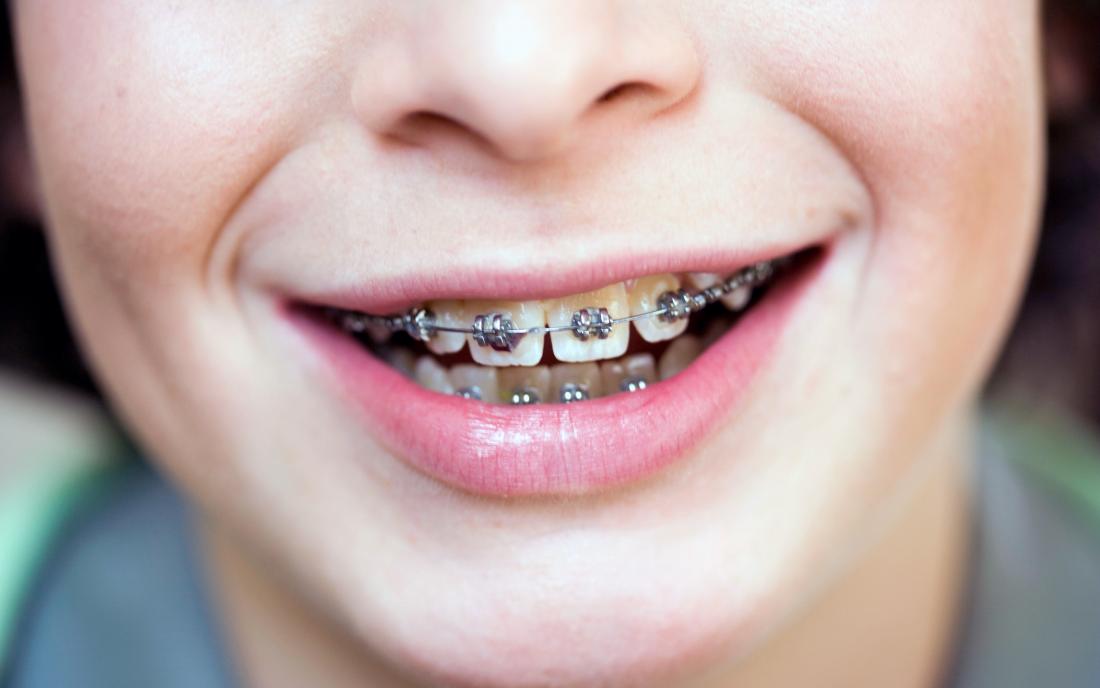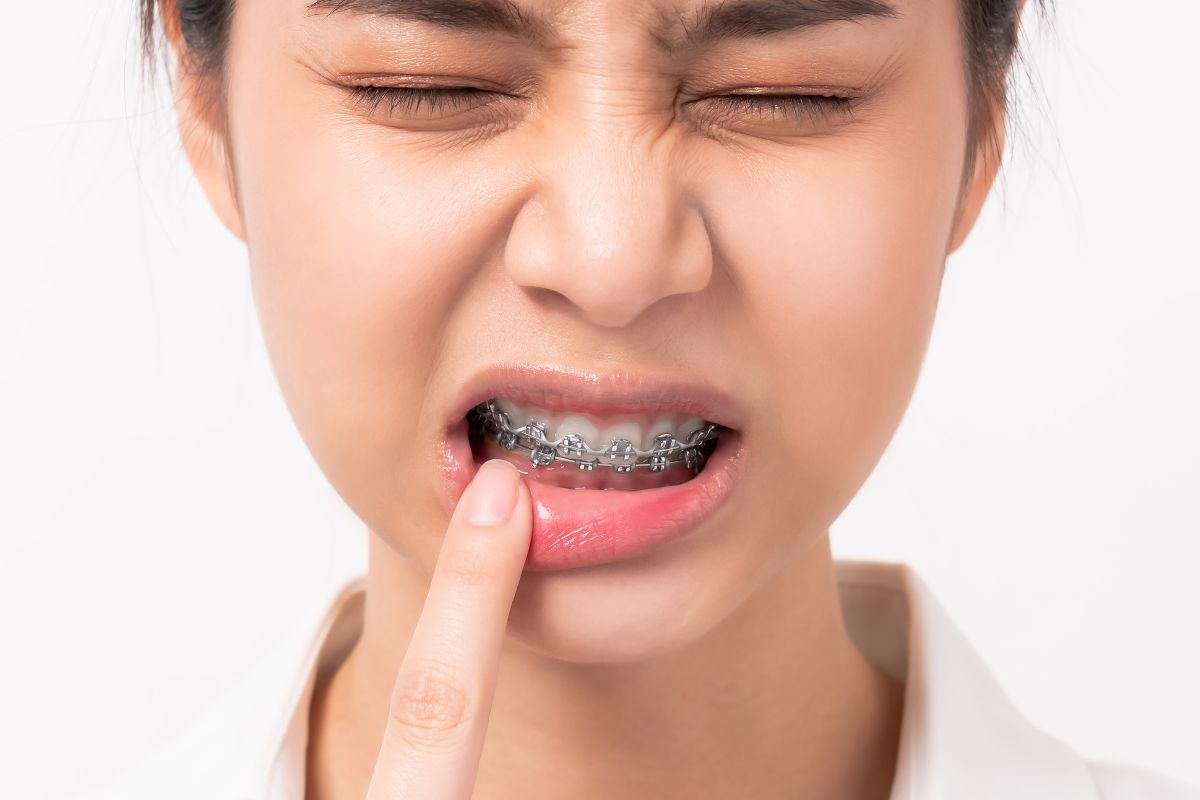Just got your braces and feeling the pinch? You’re not alone.
That initial soreness or pressure after installation or adjustments is totally normal, but it doesn’t mean you have to suffer through it.
In this guide, we’ll share quick, effective ways to stop braces pain immediately so you can get back to smiling comfortably, fast.
How to stop brace pain immediately?
To stop braces pain immediately, try using orthodontic wax on any sore spots, take over-the-counter pain relievers, or apply a cold compress to reduce swelling and numb the discomfort.
Key Takeaways
- Brace pain is common, especially after adjustments, but there are several ways to find relief.
- Simple home remedies like cold compresses, pain relievers, and soft foods can help.
- Using orthodontic wax and practicing good oral hygiene are also important for pain management.
Why Do Braces Cause Pain?
Before we dive into the pain relief options, it’s helpful to understand why braces cause discomfort in the first place.
When braces are first put on or adjusted, the wires and brackets apply gentle pressure to your teeth.
This pressure is necessary to move your teeth into the correct position over time. However, this pressure can also cause soreness in your gums and teeth.
Additionally, adjustments to your braces can cause the wires to shift, which can lead to even more pressure and pain in the following days.
It’s completely normal to feel discomfort during these times, but there are ways to ease the pain and make your experience more comfortable.
How to Relieve Braces Pain Immediately

While braces pain is temporary, there are a variety of methods to help alleviate it quickly. Here are some of the best techniques you can try to find relief:
Cold Compress for Immediate Relief
One of the quickest ways to reduce braces pain is by using a cold compress. Cold helps numb the area and reduce inflammation, making it an ideal method for immediate relief.
How to Use: Simply wrap a few ice cubes in a cloth or use a cold gel pack and apply it to the outside of your cheek where the pain is most intense. Keep it on for 15-20 minutes at a time.
Why It Works: The cold numbs the area and helps to reduce swelling and discomfort.
Pain Relievers
Over-the-counter pain relievers such as ibuprofen or acetaminophen can help reduce the discomfort caused by braces.
These medications are effective at reducing both pain and inflammation.
How to Use: Follow the dosage instructions on the bottle. It's best to take the medication after a meal to avoid an upset stomach.
Why It Works: These medications block the production of pain-causing chemicals in the body and provide temporary relief.
Orthodontic Wax
One common cause of pain from braces is irritation from the brackets rubbing against the inside of your lips and cheeks. Orthodontic wax can help prevent this irritation.
How to Use: Take a small piece of orthodontic wax and roll it into a ball. Flatten it and place it over the brackets that are causing irritation. Remove it before eating or drinking.
Why It Works: The wax creates a barrier between the brackets and your mouth, reducing friction and preventing painful sores.
Eat Soft Foods
After getting your braces on or following an adjustment, your teeth and gums may be sensitive. Eating hard, crunchy, or chewy foods can worsen the pain.
Opt for soft foods that require less chewing, such as mashed potatoes, smoothies, and yogurt.
How to Use: Stick to soft, easy-to-chew foods for the first few days after getting your braces or after an adjustment.
Why It Works: Soft foods put less strain on your teeth and reduce the pressure that may cause pain.
Additional Tips to Minimise Braces Pain
While the immediate remedies mentioned above can help, there are other tips that can help you manage brace pain and make your experience more comfortable in the long run.
Avoid Hot Drinks and Foods
Hot foods and drinks can increase inflammation and irritation in your mouth, especially when your gums are sensitive from new braces.
Try to avoid coffee, tea, or hot soup until the pain subsides.
How to Use: Stick to cooler drinks and foods to avoid aggravating your sensitive gums.
Use Saltwater Rinses
Saltwater rinses can help reduce swelling and soothe your gums.
They also promote healing and help keep your mouth clean, which is essential when you’re dealing with braces-related pain.
How to Use: Mix 1/2 teaspoon of salt in a glass of warm water. Swish the solution around your mouth for about 30 seconds, then spit it out.
Why It Works: The saltwater helps reduce inflammation and kill bacteria, which can prevent infections and promote healing.
Massage Your Gums
Gentle gum massages can increase blood flow to the affected area and help alleviate discomfort. It’s a simple method that you can do yourself at home.
How to Use: Gently rub your gums with your finger for a few minutes. This will help to relieve tension and reduce soreness.
Why It Works: Massaging the gums helps increase circulation, which promotes healing and reduces pain.
Frequently Asked Questions (FAQs)
1. How long does brace pain last after an adjustment?
Braces pain typically lasts for 1 to 3 days after an adjustment. The discomfort should gradually decrease as your teeth adjust to the new pressure.
2. Can I take painkillers to relieve braces pain?
Yes, over-the-counter pain relievers like ibuprofen or acetaminophen can help manage braces pain. Be sure to follow the recommended dosage instructions.
3. Why does my braces pain feel worse at night?
Pain often feels more intense at night due to reduced distractions and the body’s natural response to pressure. Using cold compresses or pain relievers before bed can help ease discomfort.
Conclusion
While getting braces can bring some discomfort, the pain is usually temporary and can be easily managed with the right strategies.
By following these tips, such as using cold compresses, taking pain relievers, and applying orthodontic wax, you can alleviate the pain quickly.
Always make sure to consult your orthodontist if the pain persists or if any issues with your braces arise. With the right care, you’ll be on your way to a beautiful, pain-free smile in no time.
%202.svg)



